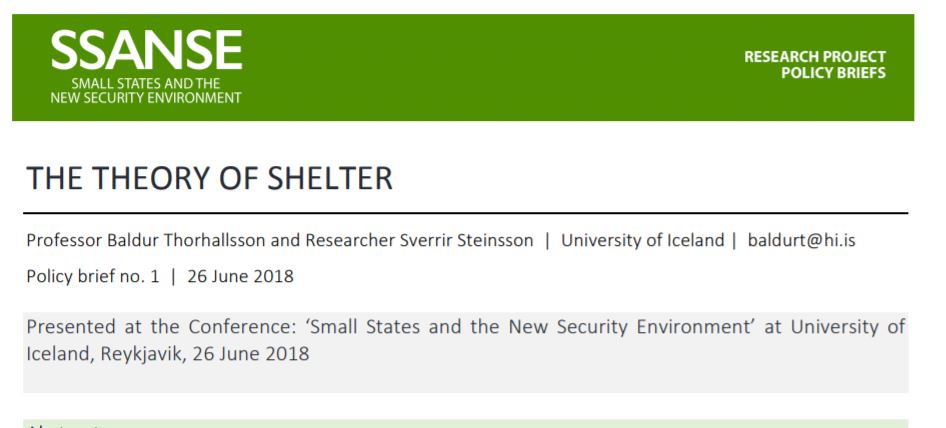Explaining the behavior of small states in the international system
Two books will shortly be published on Shelter Theory and Iceland’s external affairs from the Settlement to the present day. In our latest Policy Brief on the theory of shelter states we claim that: “...small states/entities will seek economic, political and societal shelter, and that their prosperity will be strongly linked to the nature and depth of shelter provided by larger states and/or international organizations. Shelter theory differs from other Internation Relations theories in several ways. Most notably, small states are fundamentally different units from large states. Second, the alliance choices that small states make not only serve to ensure their security, but may also have roots in domestic pressures to obtain the resources needed to achieve a successful, functional society. Third, small states benefit disproportionately from membership in international organizations as compared with large states. Fourth and fifth, small states seek partnerships with other states and alliances to achieve the resources needed to run efficient administrations and also to get the social and cultural relationships needed to keep their societies vibrant. On the other hand, such shelter does not, of course, come without costs.”
You can read the Policy Brief in full by clicking here.

